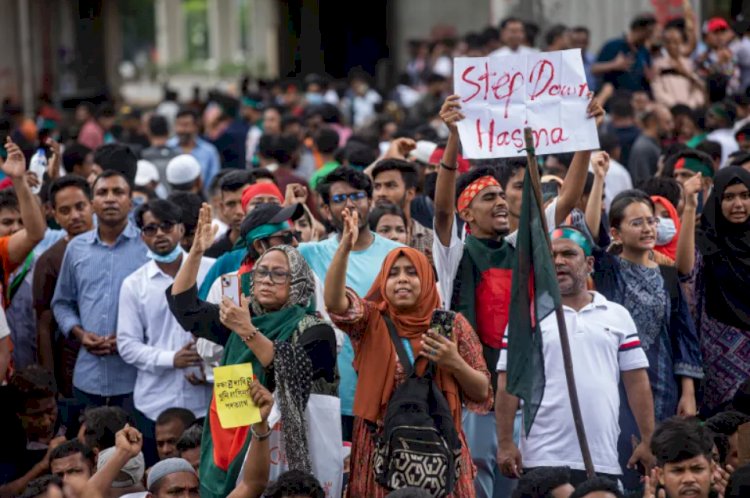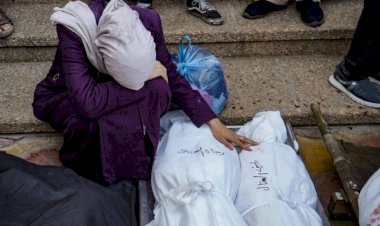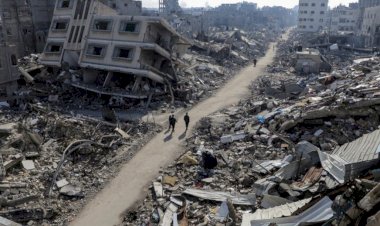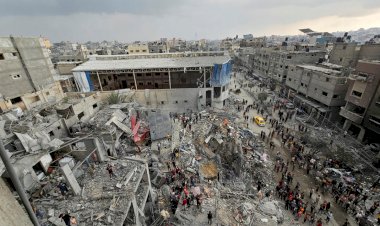Shadows Over Dhaka: Students' Uprising, Nation's Flight, and Muslim-Hindu Solidarity
In a dramatic turn of events, Bangladesh’s Prime Minister Sheikh Hasina resigned and fled the country on Monday following weeks of escalating protests led predominantly by students against a controversial quota system for government jobs. The resignation came after protests, which initially targeted the quota system, grew into a broader challenge to Hasina’s 15-year rule. The death toll from the ongoing unrest has risen significantly, reaching 440, with 100 additional deaths reported after Hasina's departure, according to local media.
The protests, spearheaded by students demanding a merit-based system to replace the quota system that reserved 30% of government jobs for the descendants of Muktijoddhas—those who fought in Bangladesh's 1971 war of independence—intensified when Hasina made a controversial remark comparing the quota system's beneficiaries to the descendants of 'Razakars,' a paramilitary force accused of atrocities during the liberation war. This comment further inflamed public sentiment and sparked widespread anger.
After her escape from Dhaka amid the turmoil, Hasina landed at Hindon Airbase in Delhi and is expected to fly to the UK today to seek political asylum. However, there has been no official confirmation regarding whether the UK has granted or will grant asylum to her.
Following Hasina's resignation, General Waker-uz-Zaman has assumed temporary control of the country. The military has been working to stem the growing unrest, but efforts have been complicated by the ongoing violence and instability. The figurehead President, Mohammed Shahabuddin, announced that Parliament would be dissolved and a national government would be formed to lead the way to new elections. However, the timeline for these elections remains uncertain.
The crisis has been exacerbated by a series of pre-existing challenges, including high unemployment, widespread corruption, and severe impacts of climate change. The main airport in Dhaka has suspended operations amid heightened security concerns, further disrupting daily life and adding to the sense of chaos.
Amidst this turmoil, a remarkable show of interfaith solidarity has emerged. Muslim clerics and community members across Bangladesh have mobilized to protect Hindu temples in response to a surge in attacks on Hindu communities and their places of worship. This proactive measure underscores a commitment to communal harmony and mutual respect in the face of rising tensions. The attacks on Hindu temples and communities have drawn widespread condemnation and highlighted the need for unity in times of crisis.
The international community is closely watching developments in this densely populated nation on India's border. Efforts are underway to address the humanitarian crisis and restore stability to Bangladesh as the country navigates through this unprecedented period of unrest and political upheaval.
Disclaimer
The views expressed in this article are the author’s own and do not necessarily mirror Islamonweb’s editorial stance.
























Leave A Comment